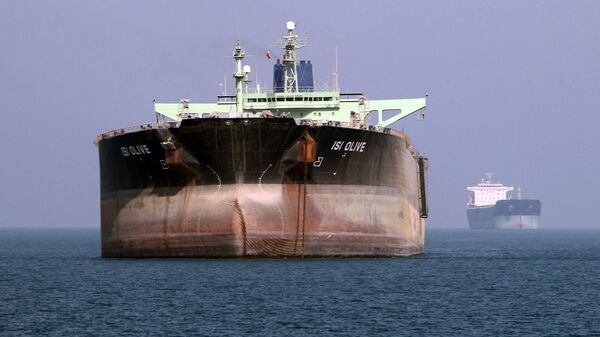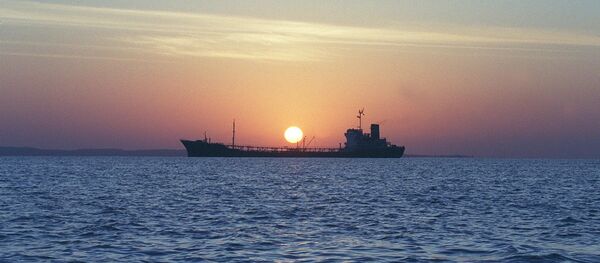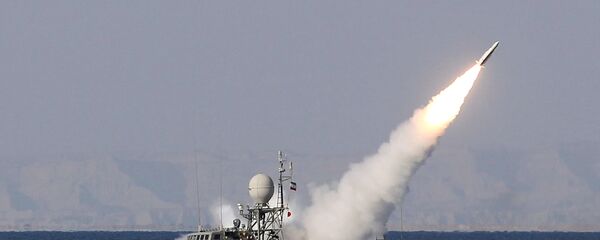Sputnik discussed this issue with Michael Poulsen, an oil analyst at Global Risk Management Ltd.
Michael Poulsen: Certainly not with any popularity in the countries, in the local community and in the Middle East.
But straight out war is probably a tad bit premature to estimate. But definitely a very significant event will happen and it’s something that will have a great impact on global oil prices.
Sputnik: How significant is the Strait of Hormuz? How much oil goes through Hormuz? Which countries would be affected and what kind of money are we talking about?
Michael Poulsen: It’s a great deal of money, it’s roughly 70 million barrels per day, depending on how we measure it, and it’s mostly seaborne.
Sputnik: Which countries would be the most affected by this, both from the export side and the import side?
Michael Poulsen: It’s certainly the export side, there’s obviously people importing oil that would be able to get oil from strategic oil facilities around the globe and also that’s enough to at least keep things running for some time.
It depends, of course, on how long such a closure could take place.
Michael Poulsen: The kneejerk reaction would most probably be upwards and depending on how it’s closed and what happens, that would determine how much we’re going to go up.
Iran has a capability to close the strait for a short period of time.
The US 5th Fleet is right in the neighborhood and they’re practicing pretty much every day for such an event. It’s something that could be reopened through force fairly quickly, depending on how things escalate, but for certain it will put a risk premium on tankers’ insurance and oil prices in general on a global scale.
Sputnik: How much would this affect the US and its oil markets?
Michael Poulsen: The US oil market alone would likely not [experience] the greatest effect [of] that, as we’re pretty much self-supplied at the moment, but if this had been 5 or 10 years ago, it would have been a completely different ballgame; but with shale oil production, it’s a little different for the US, so it won’t have a direct huge impact.
It would increase global prices and, as such, also in America, but that wouldn’t disrupt their supply situation.
Michael Poulsen: I would assume they would still stay a member of OPEC, because members of the OPEC organization have benefitted from being a member, but obviously there will be some extra tensions at the next meeting.
Sputnik: Is this realistic? It would seem that Iran would also be affected as far as their capability to sell oil, if this were the case. Do you think that the backlash from this for Iran would make it a very unfavorable decision?
Michael Poulsen: It’s not something that would benefit them. That would be rather depending on how it’s done, there would be another big backlash, as you mentioned.
Also depending on how it’s done, I don’t think the Iranian fleet wishes to engage in a straight-out confrontation with the US Navy in the area. That would most certainly end in one way, if you count the number of ships in the area of both sides.
Michael Poulsen: There’re of course mines that can be deployed, it would be practiced. The mines could be swept, but the big risk is then if there’s a single mine that’s forgotten or overlooked and an oil tanker hits it when the strait is reopened, then you have a rather big problem.
A second scenario could be to sink various vessels in the strait.
The views expressed in this article are solely those of Michael Poulsen and do not necessarily reflect the official position of Sputnik.





